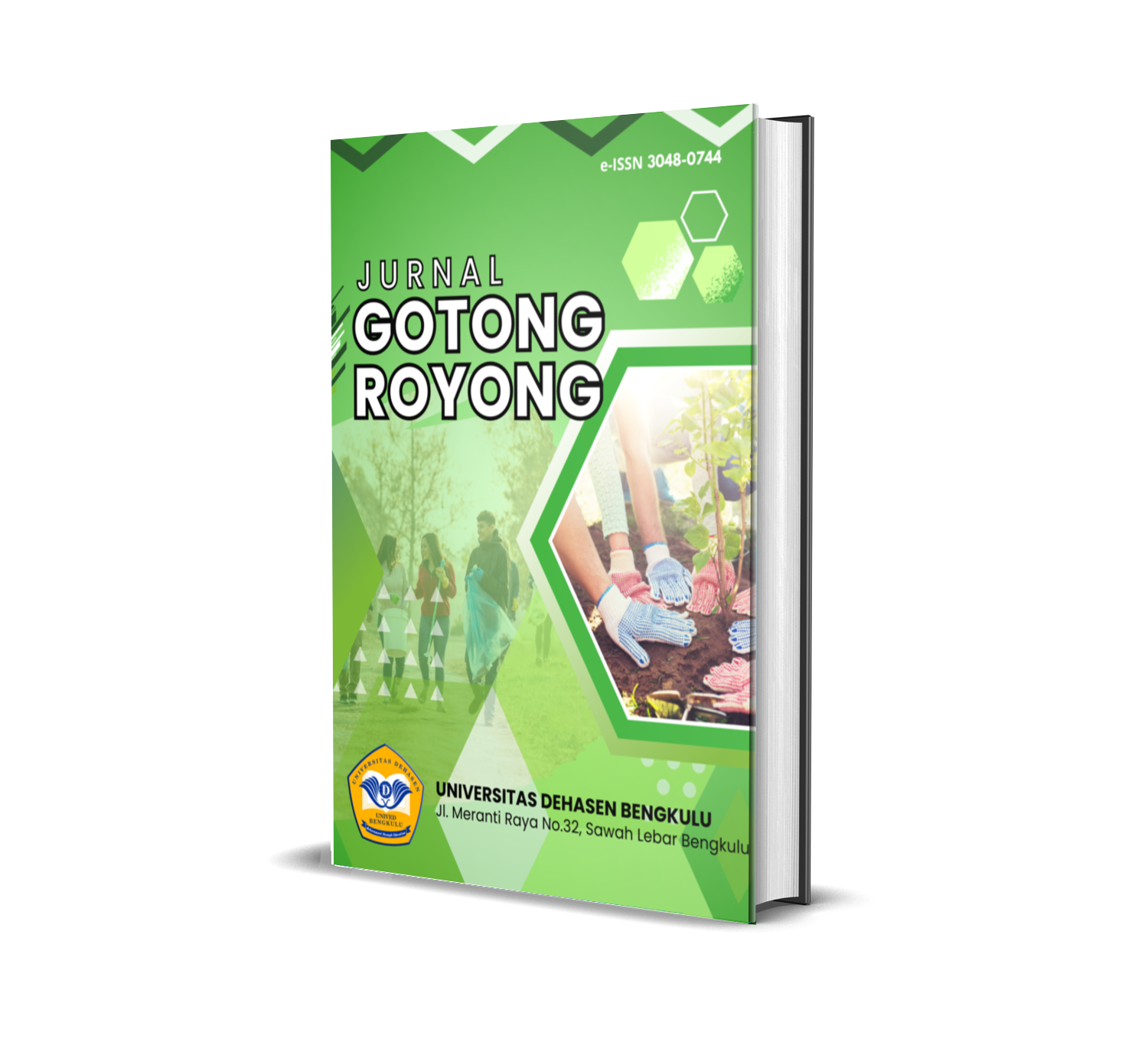Program Kaliber (Kawal Pemilu Bersih) Di Kelurahan Koto Panjang Kota Padang Panjang
Abstract
This research aims to analyze the Clean Election Guard Program implemented in Koto Panjang Subdistrict, Padang Panjang Timur District, Padang Panjang City which focuses on discussing the form of socialization carried out and the obstacles encountered in guarding the 2024 Election. The research method used is field research with a qualitative approach. Data sources include primary data sources obtained directly from the field and secondary data sources from books, journals and scientific articles. Data collection techniques were carried out using interviews and documentation. The collected data was then analyzed using qualitative data analysis methods. The results of this research conclude that the Clean Election Guard (Kaliber) Program in Koto Panjang Subdistrict, Padang Panjang Timur District, Padang Panjang City has been running effectively and efficiently in accordance with the desired objectives, namely to oversee the implementation of the 2024 Election which is honest, fair, clean and democratic.
Downloads
References
Adiwidjaya, Dody Setiawan dan Ignatius. 2013. “Strategi Meningkatkan Kesadaran Politik Dan Menolak Money Politic Pemilih Pemula Pada Pilkada Kota Malang.” Jurnal Reformasi 3 (2): 90–95.
Arif Awaludin. 2021. Bahaya Politik Uang Dalam Kontestasi Demokrasi (Penyuluhan Hukum Di Desa Kaliwedi Kebasen Banyumas). Purwokerto: Seminar Nasional Penelitian dan Pengabdian Kepada Masyarakat (SNPPKM) Purwokerto.
Bintar R. Siragih. 1998. Lembaga Perwakilan Dan Pemilihan Umum Di Indonesia. Jakarta: Gaya Media Pratama.
Fasilitator Program Kaliber. 2024. Buku Panduan & Log Book Kawal Pemilu Bersih. Sumatera Barat: LUHAK FH UM Sumbar.
Feri Amsari Dkk. 2021. Konstitusionalitas Dan Kerangka Hukum Penyelenggaraan Pemilu Dan Pemilihan Serentak Tahun 2024. Padang: Laporan Hasil Riset Peneliti Fakultas Hukum Universitas Andalas.
Moch Edward Trias Pahlevi dan Azka Abdi Amrurobbi. 2020. “Pendidikan Politik Dalam Pencegahan Politik Uang Melalui Gerakan Masyarakat Desa.” Integritas: Jurnal Antikorupsi 6 (1): 141–52.
Mulyana, Dedi. 2004. Metodologi Penelitian Kualitatif (Paradigma Baru Ilmu Komunikasi Dan Ilmu Sosial Lainnya). Bandung: Remaja Rosda Karya.
Nasution. 2006. Metode Research. Jakarta: Bumi Aksara.
Sugiyono. 2014. Metode Penelitian Pendidikan, Pendekatan Kuantitatif, Kualitatif Dan R&D. Bandung: Alfabeta.
Syamsuddin Haris. 1997. Struktur, Proses Dan Fungsi Pemilihan Umum, Catatan Pendahuluan Dalam Pemilihan Umum Di Indonesia. Jakarta: PPW-LIPI.
Umar, Mashudi. 2015. “Money Politic Dalam Pemilu Perspektif Hukum Islam.” Atturas 1 (1): 107.
Copyright (c) 2024 Aryo Yasya Rachma, Sukmareni Sukmareni

This work is licensed under a Creative Commons Attribution-ShareAlike 4.0 International License.
An author who publishes in the Jurnal Gotong Royong agrees to the following terms:
Author retains the copyright and grants the journal the right of first publication of the work simultaneously licensed under the Creative Commons Attribution-ShareAlike 4.0 License that allows others to share the work with an acknowledgement of the work's authorship and initial publication in this journal
Submission of a manuscript implies that the submitted work has not been published before (except as part of a thesis or report, or abstract); that it is not under consideration for publication elsewhere; that its publication has been approved by all co-authors. If and when the manuscript is accepted for publication, the author(s) still hold the copyright and retain publishing rights without restrictions. For the new invention, authors are suggested to manage its patent before published. The license type is CC-BY-SA 4.0.
Jurnal Gotong Royong
is licensed under a Creative Commons Attribution-ShareAlike 4.0 International License.










